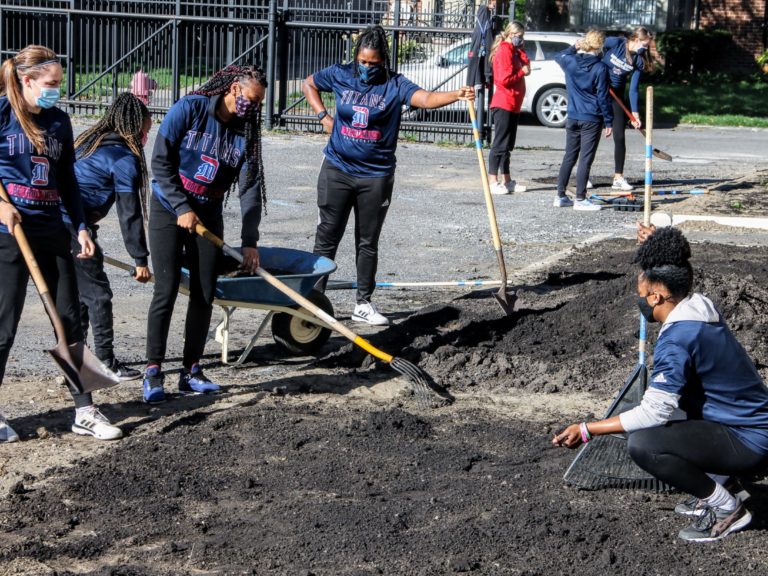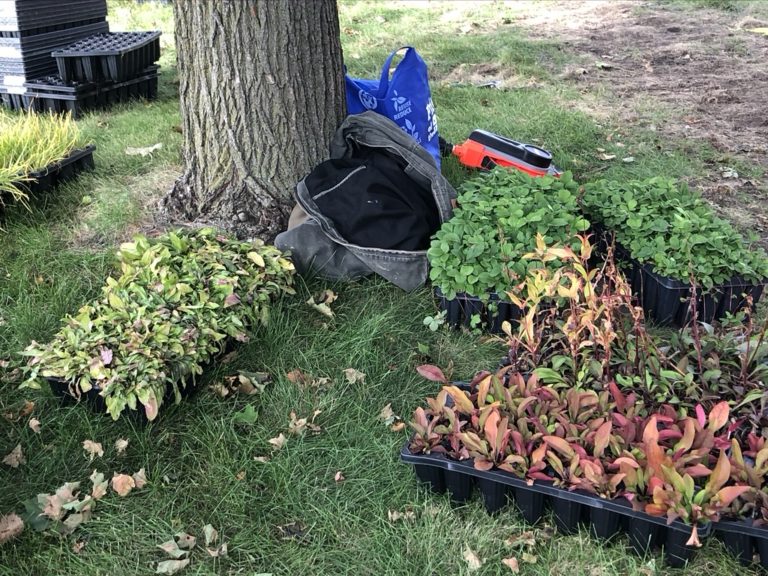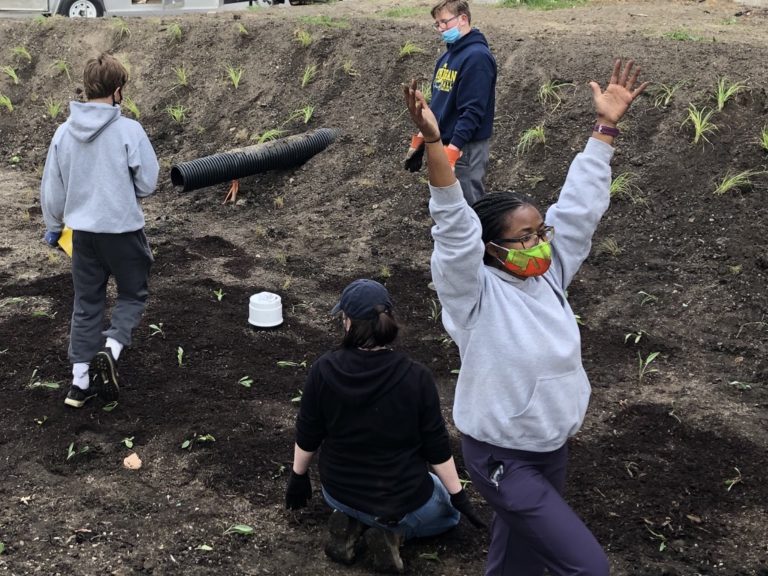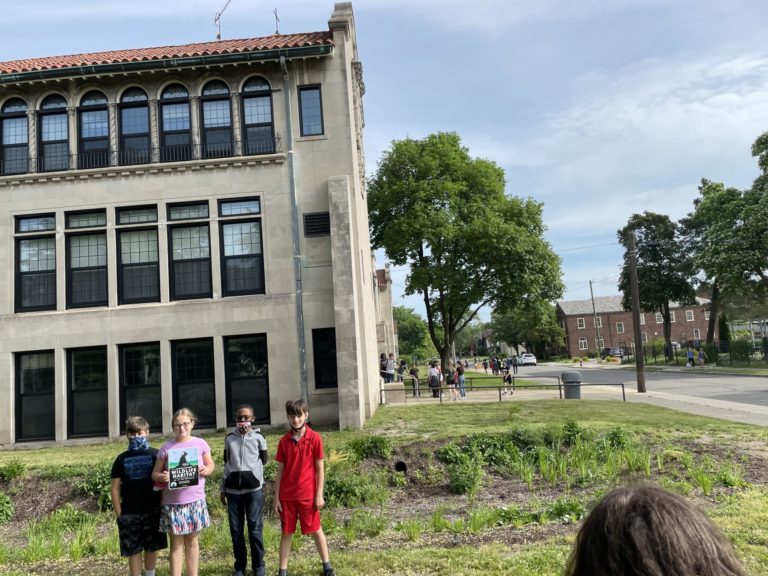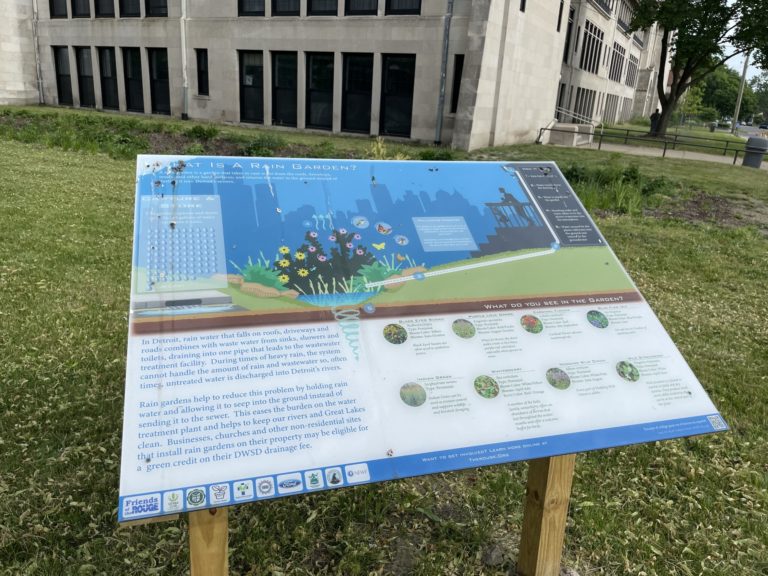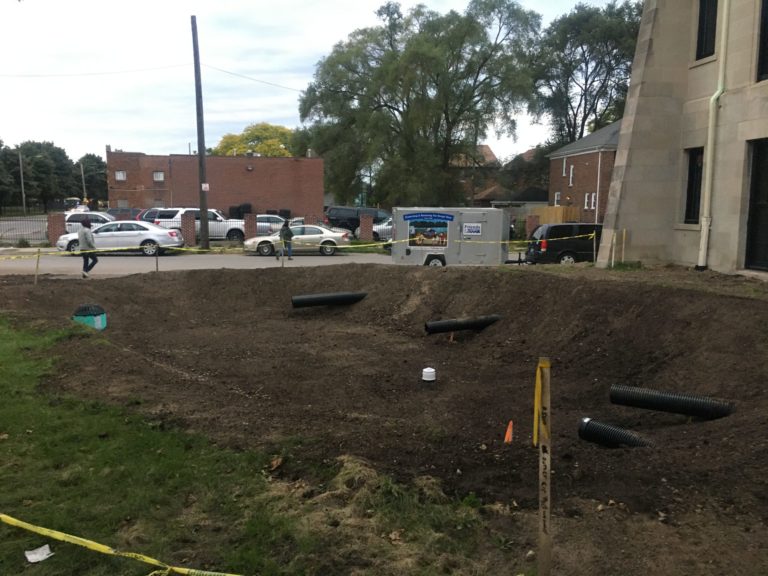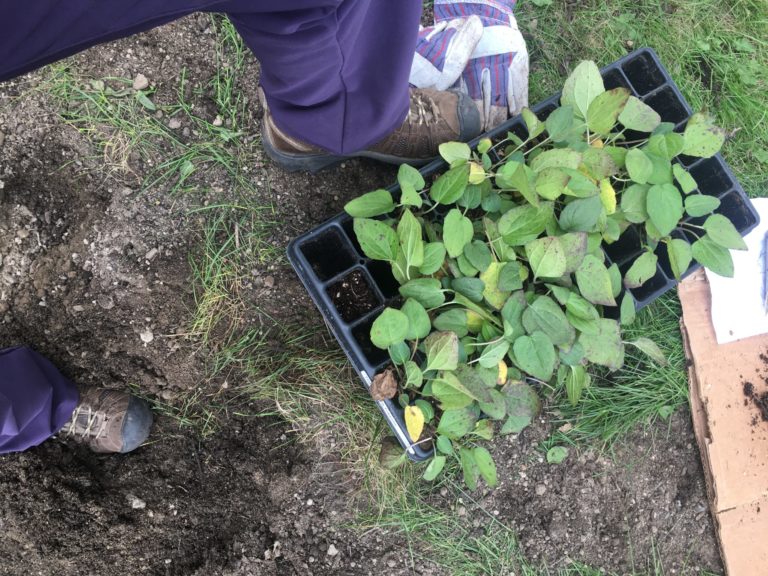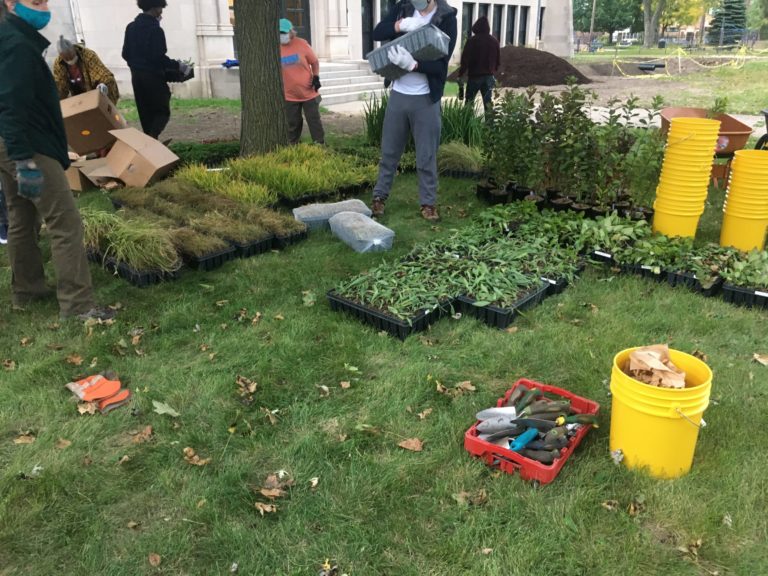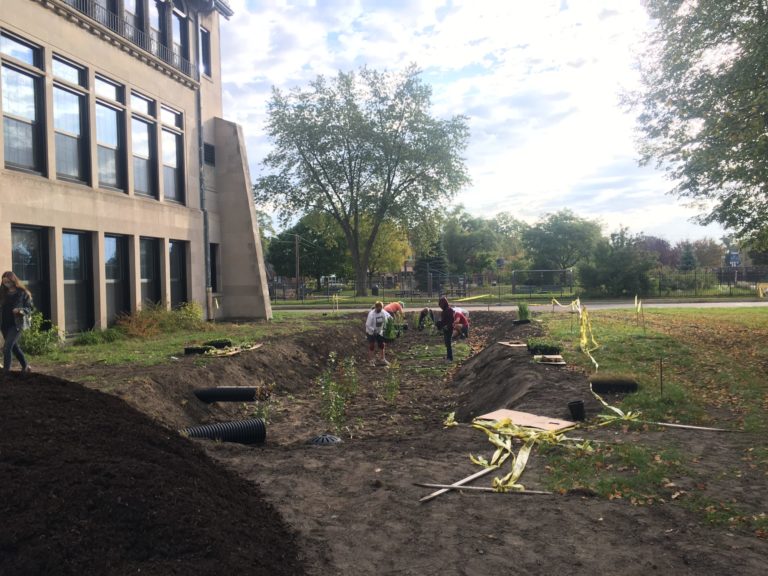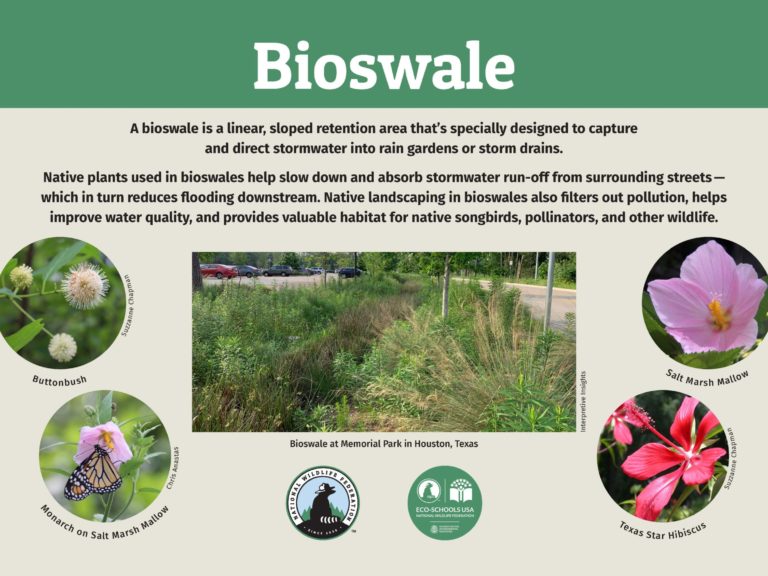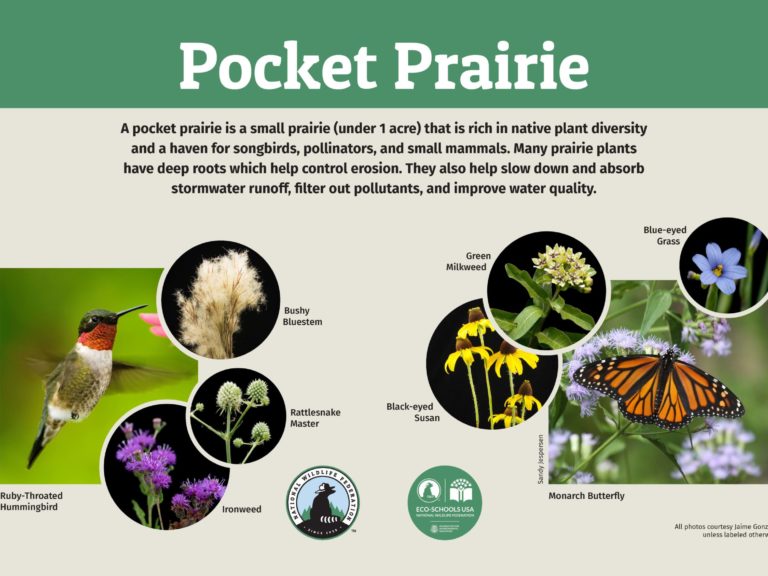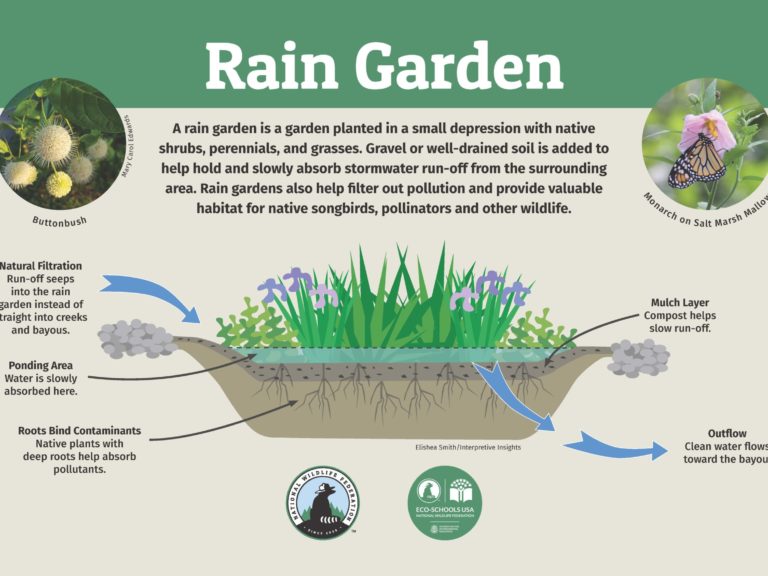We have much more to do and your continued support is needed now more than ever.
Detroit Houses of Worship Join Hands in Addressing Stormwater Runoff
The National Wildlife Federation Sacred Grounds Detroit Program Combines Faith With Environmental Stewardship
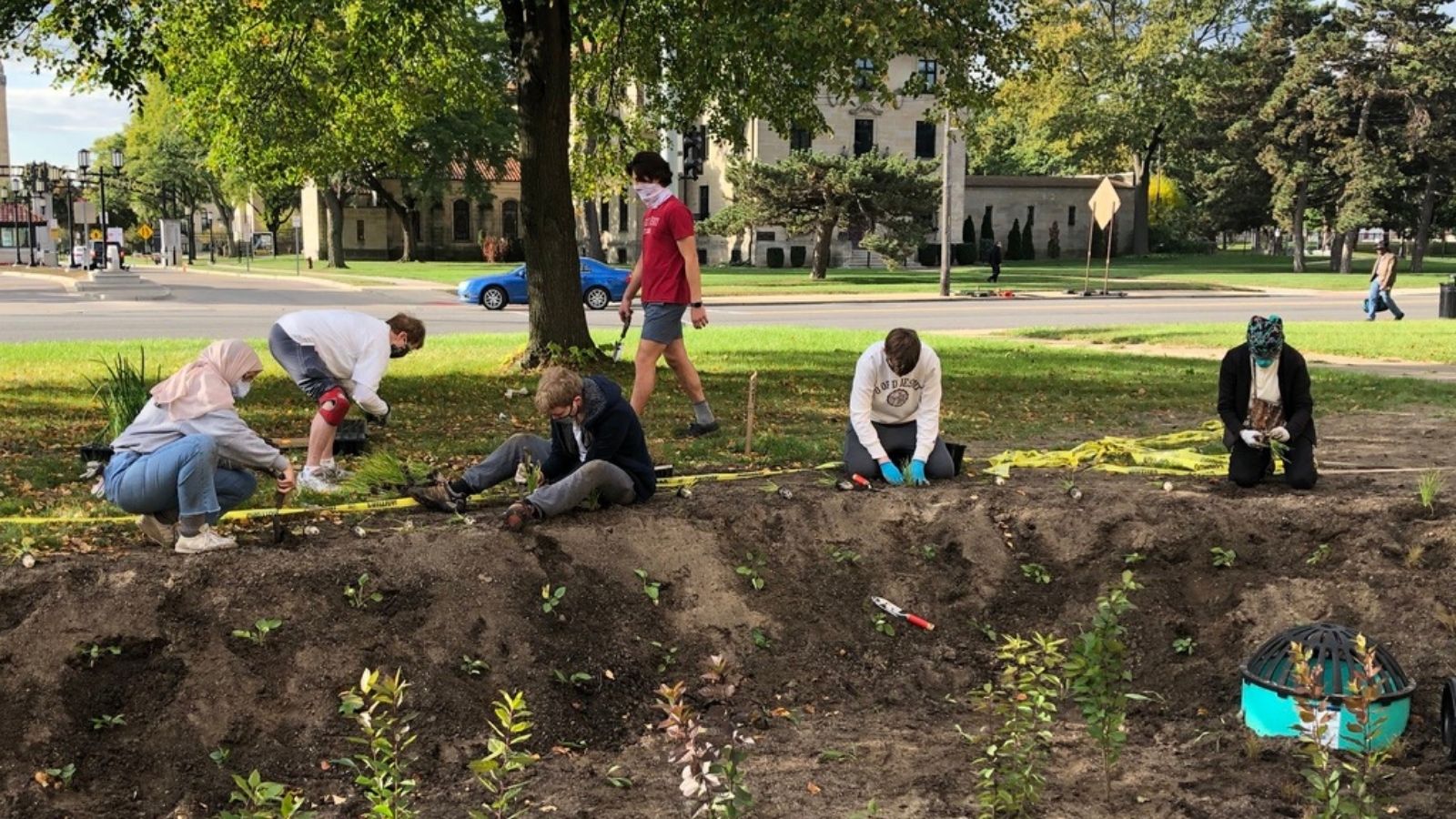
The Gesu Catholic Church and School on Detroit’s west side has drawn thousands of worshippers and students over its 100-year history. Notable names include four Detroit mayors and the late Congressman John Dingell.
But two sprawling surface parking lots that once overflowed with Sunday morning parishioners have turned into an expensive liability for one of Detroit’s landmark houses of worship.
Already struggling with declining membership, Gesu is suddenly facing a doubling of its annual sewer drainage fee to nearly $27,000 as the Department of Water and Sewerage looks to aggressively charge landowners for stormwater running off their property. Detroit is trying to cover costs for badly-needed system upgrades to prevent overflows that dump untreated sewage directly into the Rouge and Detroit Rivers—and ultimately Lake Erie.
“Look, I get the concept that we need to keep water out of the river but there was no way we could afford these higher costs,” said Anita Sevier, Community Outreach Coordinator at Gesu School. “We’ve got enough problem just keeping the lights on.”
Now, thanks in part to a grant from the National Wildlife Federation Great Lakes Regional Center, Gesu is cutting its stormwater bill by reducing the amount of impervious surface on its six acres spread across two city blocks. The church has turned the cracked pavement into flower-filled community greenspaces to keep excess stormwater out of the street drains.
“We disconnected 49 downspouts and filled something like four dumpsters with concrete and removed over 14,800 ft of asphalt,’’ said Sevier. “Then we were able to get the kids out planting flowers in the rain gardens.”
Gesu is one of nine houses of worship in the City of Detroit planning to implement green stormwater infrastructure (GSI) projects through the Sacred Grounds Program funded by the National Fish and Wildlife Foundation Southeast Michigan Resilience Fund.
Last year, the National Wildlife Federation, Friends of the Rouge, and Sierra Club of Michigan formed an innovative partnership to assist houses of worship to install native plant, green stormwater infrastructure (GSI) projects (e.g. rain gardens) while also connecting the congregation and surrounding community to accessible, inclusive natural spaces. NWF also runs a Sacred Grounds project in Toledo.
Caring Communities
Sacred Grounds recognizes congregations, houses of worship, and faith communities that both create wildlife habitat and actively link faith practices and caring for the environment.
This program is also helping the National Wildlife Federation broaden its engagement with communities of color in the Great Lakes region by recognizing the barriers to access nature and supporting the visions of communities to save wildlife and ourselves.
“Sacred Grounds is really about leveraging the grassroots capacity of houses of worship to act as environmental and social change agents both onsite and throughout the greater community,” says Tiffany Carey, NWF Senior Education and Engagement Coordinator.
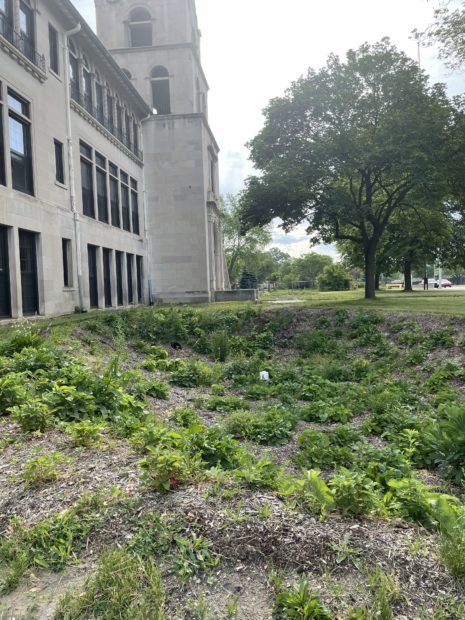
As a community-based environmental program, Sacred Grounds Detroit is open to all houses of worship. Most of the programming, including talks, forums, and workshops—is offered free to community members and residents across the city.
The idea is to promote healthy communities and healthy habitats, ultimately leading to a network of greenways throughout Detroit. Revitalized green spaces can become native playscapes for children, food gardens, or neighborhood gathering spots for people of all ages.
To earn Sacred Grounds designation, churches must also conduct outreach within their own congregation and surrounding neighborhoods via garden tours, native plant sales, or demonstration projects.
GSI and Environmental Justice
Facing higher stormwater fees in Detroit, churches can also realize some major savings by investing in rain gardens, bioswales, or retention basins. Gesu is hoping to cut some $8,000 off its annual sewer bill by reducing hard surfaces and is lobbying for even more relief for softening its footprint.
Oday Salim, staff attorney for the NWF Great Lakes Regional Center, says the Sacred Grounds Detroit effort offers a way to improve the environment while delivering front-line financial assistance to those most in need.
“These stormwater rates are hitting Black and Brown communities especially hard,” says Salim. “There has been so much white flight you’ve already got a diminished tax base so it’s really been a struggle to pay for anything in the city.”
In fact, the stormwater-free structure has become a big issue citywide as hundreds of urban churches of all sizes struggle to stay afloat. A group of faith leaders have continued to make their case to Detroit Mayor Mike Duggan.
Customers are now charged based on the size of their parking lots, rooftops, or other hard surfaces where in the past many businesses or non-profit houses of worship paid little or nothing in drainage fees. But city officials maintain these fees to spread out the costs for wastewater treatment more equitably.
Despite those challenges, Salim says the NWF’s investment in Detroit’s faith community is taking technical problems like urban stormwater management and making them part of a broader cultural effort.
“It’s not just about green engineering but civil rights,” he says. “Green infrastructure adds so many other things; improved animal habitat, connections to nature, cleaner air, improved mental health and recreational opportunities.”
Sacred Grounds Detroit has also helped connect the faith community connect with other local environmental groups including Friends of the Rouge, Sierra Club of Michigan, Keep Growing Detroit, and Detroit Collaborative Design Center that work to provide educational opportunities and technical assistance for efforts like the one at Gesu Church.
“As a result of COVID-19, many houses of worship have been dealing with other priorities like mortgage payments and keeping their congregation safe,” says Carey. “So now we’re hoping to get all the rain garden installations done this year. It’s an exciting time, and folks are ready to get back outside!”

